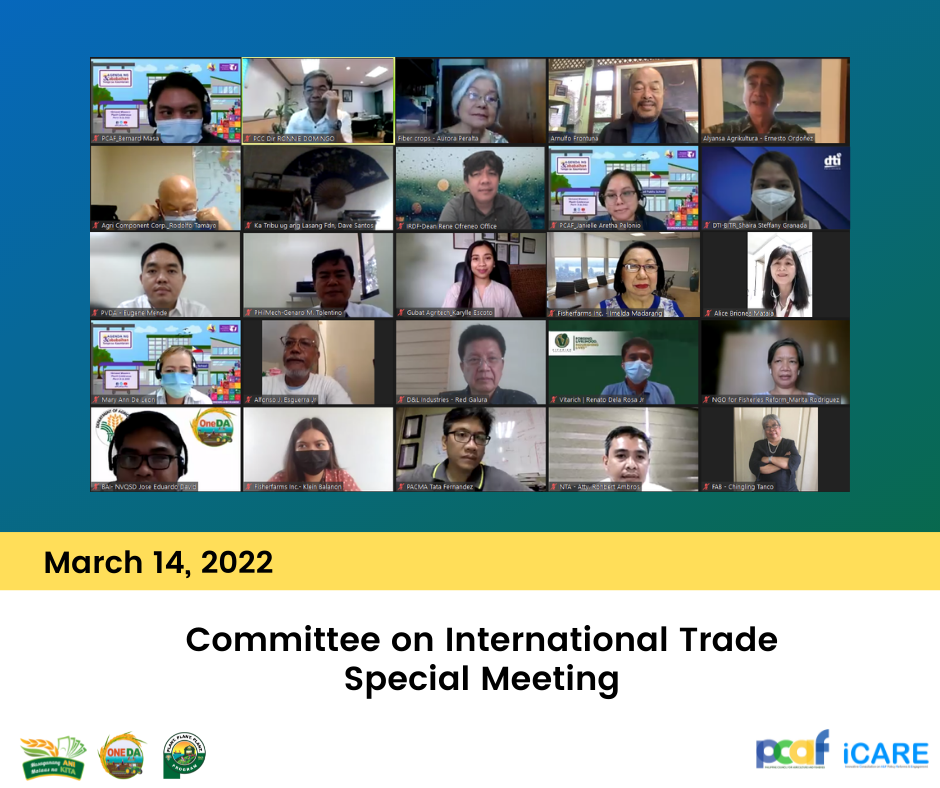
To further intensify the country’s anti-smuggling efforts, the Committee on International Trade (CIT) discussed on March 14, 2022 the creation of a Technical Working Group (TWG) to come up with the terms of reference and membership of the proposed Anti-Smuggling Committee.
Early this quarter, the Committee adopted a resolution calling for the Bureau of Customs (BOC) to update regional data on smuggled, including misdeclared and undervalued, agricultural produce and monitor violations on trade remedies for all high-value crops.
As discussed, the proposed Committee will be a high-level multi-stakeholder group that will work beyond the Department of Agriculture (DA) and will safeguard the country’s agricultural produce against unfair trade and smuggling activities in relation to the ratification and implementation of the Regional Comprehensive Economic Partnership (RCEP) Agreement.
RCEP is a free-trade agreement between the 10 member states of the Association of Southeast Asian Nations (ASEAN) and five of ASEAN’s external partners that include Australia, China, Japan, Korea, and New Zealand. It aims to enhance trade and investment-related activities and contribute to minimizing development gaps among parties.
To ensure the protection of domestic industries in the implementation of RCEP, the DA-Policy Research Service (PRS) elaborated on the trade remedy measures and safety nets under RCEP, which included the retention of the World Trade Organization trade remedies and the addition of transitional safeguards. These transitional safeguard measures aim to address increased imports that pose threats to a domestic industry due to the reduction or elimination of tariffs under RCEP.
In line with this, DA-PRS clarified that the Philippines did not make new commitments under RCEP, which means that current tariffs imposed on usual commodities, such as rice, pork, and fish, were retained. | JCL











